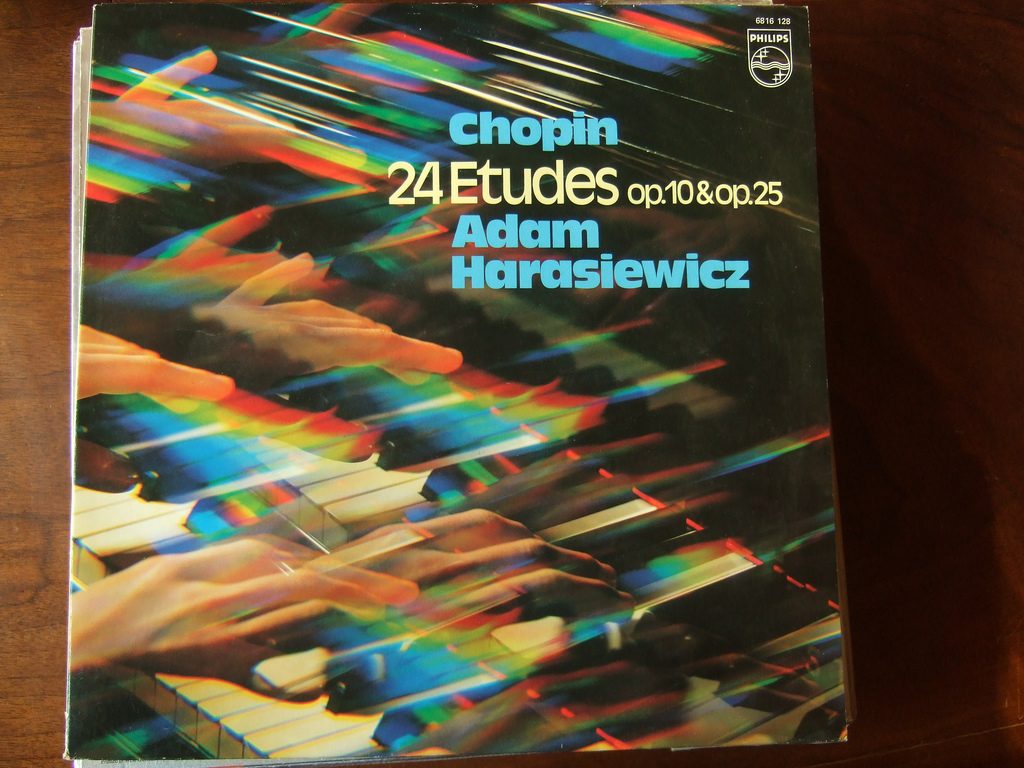Some Études
I hope these get you through 3p.m.

Image: Piano Piano! via Flickr
Crazy when you think about it that “Brevity is the soul of wit,” is a phrase I hear all the time and hate very much, is from Hamlet, which takes a long time to watch (or read). There’s not been a lot of brevity in this column when you think about it, has there? One time, back when this column used to be called “Classical Music Hour,” someone emailed me and asked me if they were meant to take a full hour to read the pieces. Officially: no. Please take six minutes and move on with your life, I beg you.
But listening to classical music often takes patience and what if you’re having one of those days where there’s literally none on reserve? You’re tapped, you’re dry, you need the jolt of energy that only a pop song or an étude can provide so hey, how about some études? What’s an étude, you might be asking, especially when presumably you already know what a pop song is? Well, an étude is a short composition for a single instrument that’s reasonably light in tone and impossible in terms of difficulty.
In the 1830s, Polish composer Frédéric Chopin composed three sets of 12 études, and I would love to share with you Op. 10, my personal favorite set of twelve recorded in 2002 by John Bingham. Chopin composed these when he was only 23 years old, which is astounding, honestly, and dedicated the set to Liszt, who was one of his mentors. What is there to say about Chopin in a column I’m hoping reads as quick and skillful as his études? He was mainly known to play in parlors, not particularly sociable, kind of hot, and died young.
It’s a little difficult to talk about twelve different pieces of music, especially ones so short. They’re like the Slavonic Dances in that sense; you’ll key into some more than others. Here’s my personal favorite, and I know it is a “basic” and “obvious” choice but I am both of those things so “chill out”: Étude No. 5 in G Flat Major “Black Keys”. Black Keys, its nickname because G Flat major uses predominantly black keys on a piano, is a ringtone of a piece. I mean that as a compliment, for what it’s worth. I heard it as a ringtone once and yelled “Black Keys!!!” and the person said, “I just like the melody.” No shit. It’s hard not to! You can immediately understand how difficult and charming it is all at once. I would advise you to listen to all twelve of these études straight through but if you have to go back and listen to Black Keys a few times over for the sake of your soul, then go wild, my friends.
Hm, what else is good here? Étude No. 1 in C Major is almost like a companion piece to Black Keys: C Major, of course, being all white keys. But it shares a sense of humor about itself and a cheerfulness I find unparalleled when my mood has soured. Études! What a nice time they can be. You can see why Chopin would go around and play these in parlors for people who like sitting. Very often, when you’re sitting, you want something short to enjoy, like a piece of video content from your favorite formerly text-driven publication. The transition from Étude No. 1 into Étude No. 2 in A Minor “Chromatique” (the minor key of C Major… this is just music stuff so if you’re like, okay???? then please don’t worry, it really doesn’t matter, I’m just bragging about knowing keys at this point). Chromatique has an air of mischief that makes it sound as if Chopin was just having a classic time, you know? It’s devious and playful in the way a 23-year-old ought to be.
And then I suppose we must talk about the final piece in this series, Étude No. 12 in C Minor “Revolutionary.” Revolutionary! It’s titled as such not because the piece itself was revolutionary—though it is fantastic and ground-breaking in its own right—but because it was written in a tumultuous time, during the November Uprising AKA the Polish-Russian War. It wrecked Chopin at the time and made him endlessly worried for his home country. The conflict is present in this piece, and it has somehow eclipsed several of the more fun pieces as the most notable and memorable from this series (see “In Pop Culture” down below here). I’m not particularly partial to it, but I respect that Chopin took a form largely used for just showing off in front of your friends and instead wrote about something troubling him. Good job, buddy!!
I hope these get you through 3p.m, the worst time of day, the way a piece of dark chocolate or and iced coffee or a walk around the block get me through my day. If études are brags—and they are, I’m right—you deserve to indulge in someone else’s good skill to help you build your own. And hey, maybe you get a new ringtone out of it.
There is a corresponding playlist for all pieces discussed in this column here.
